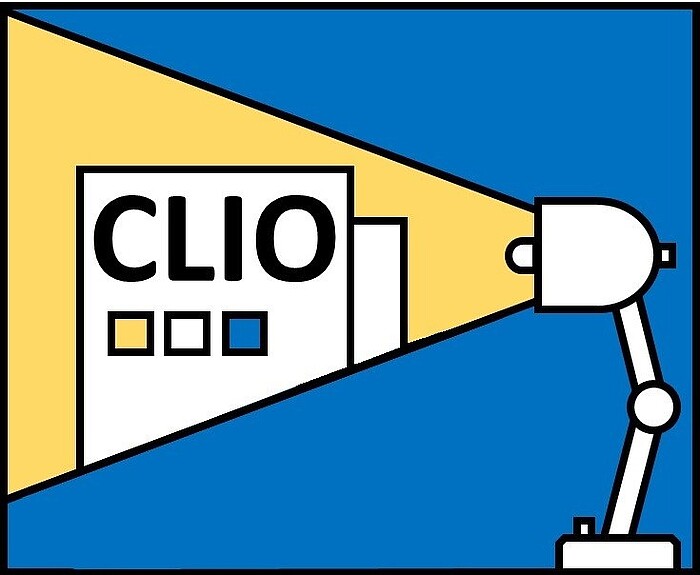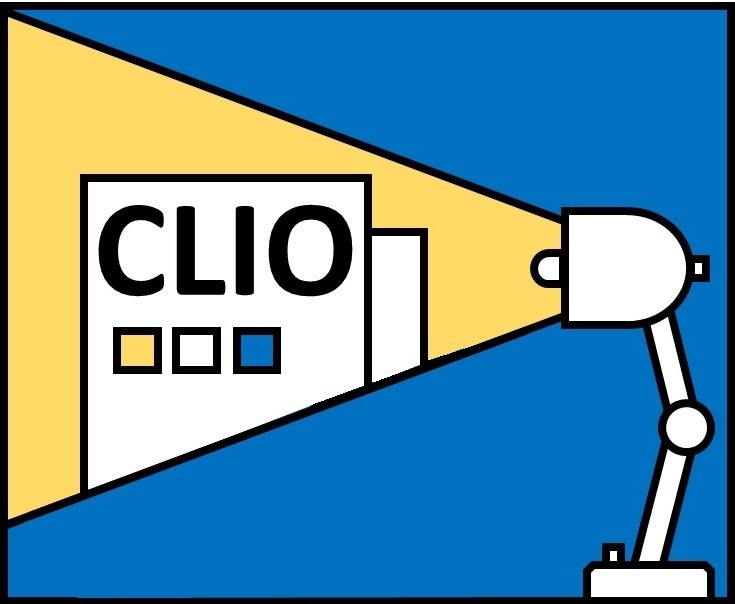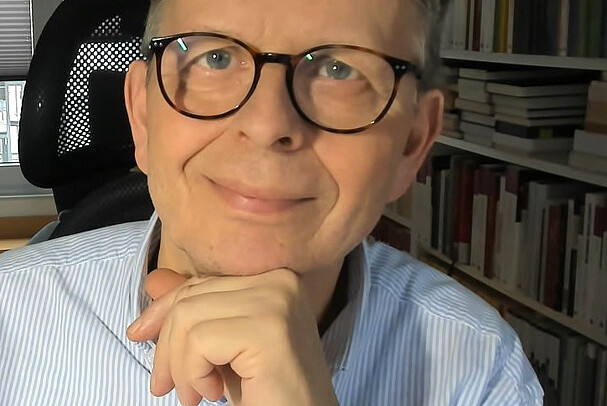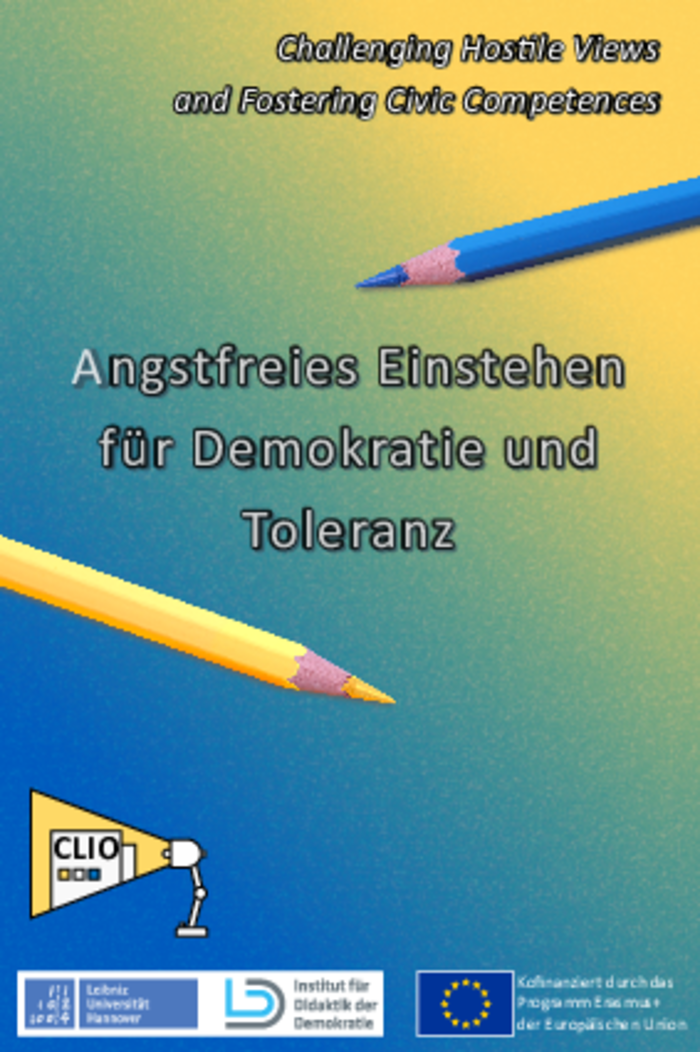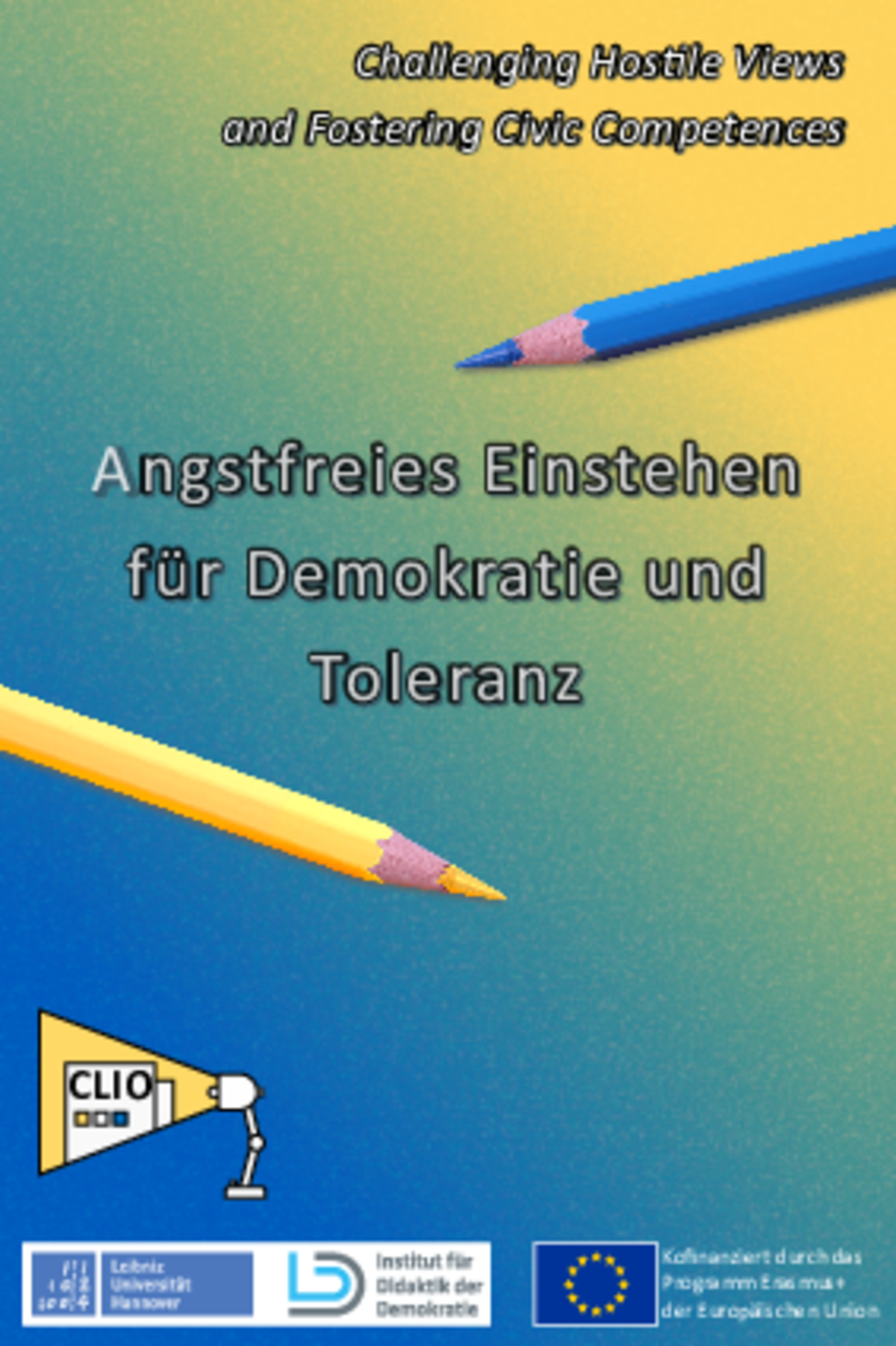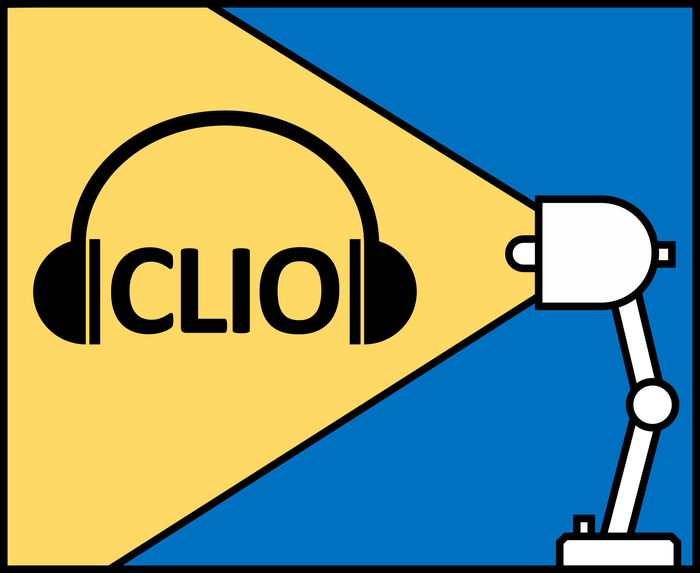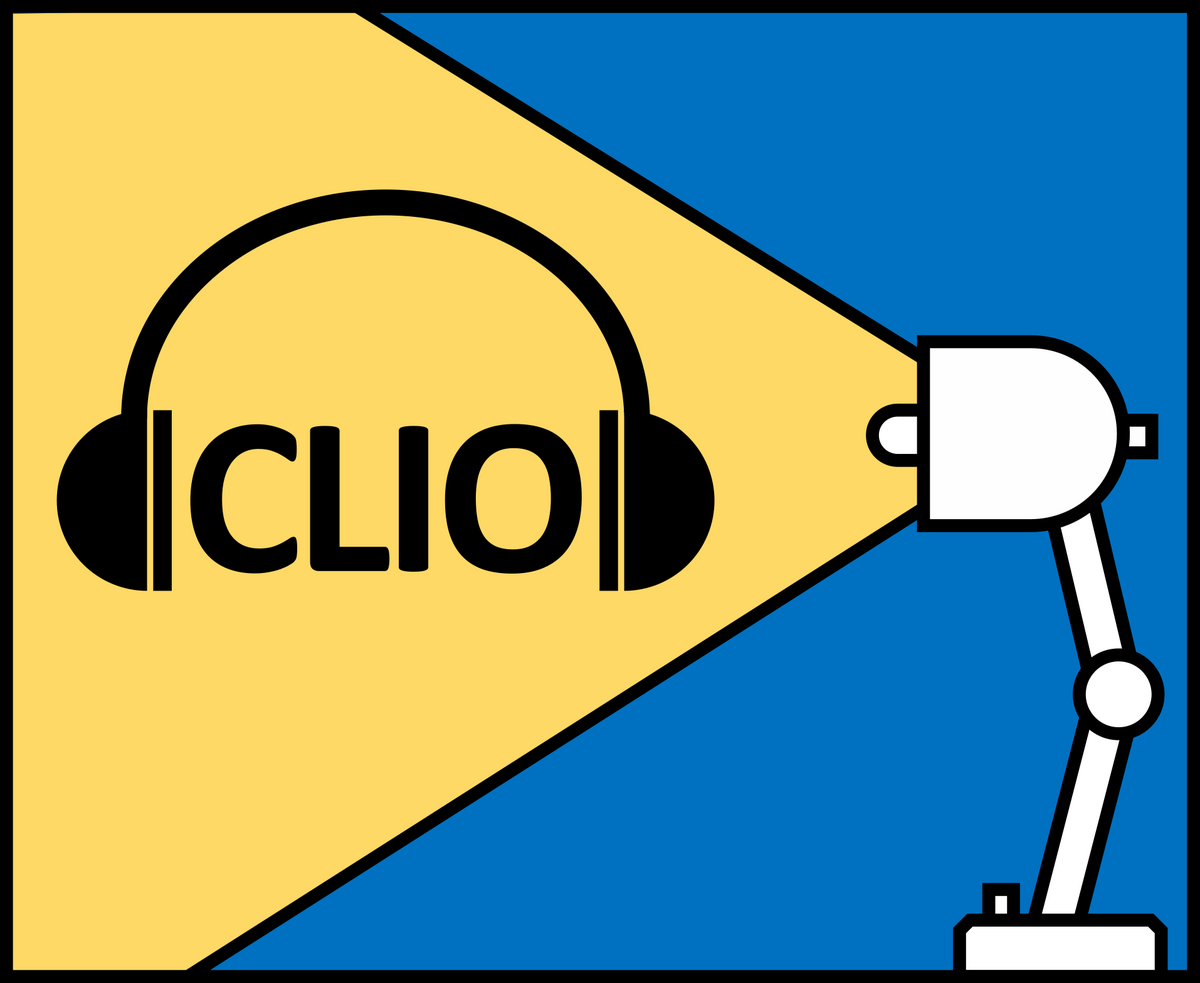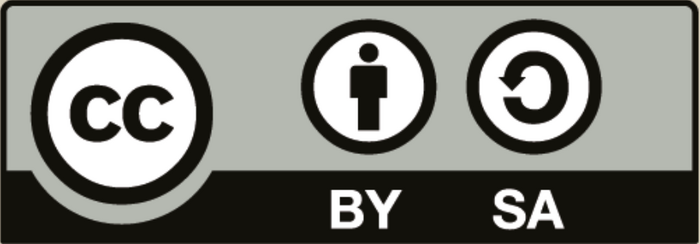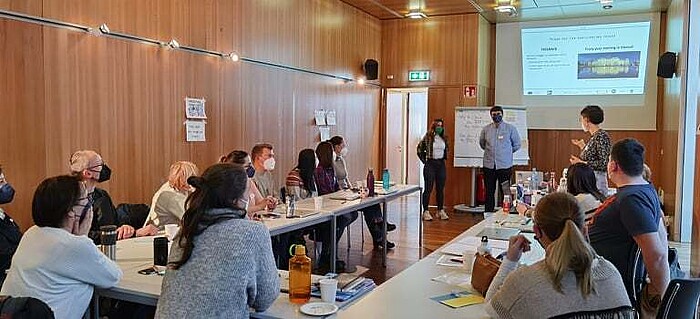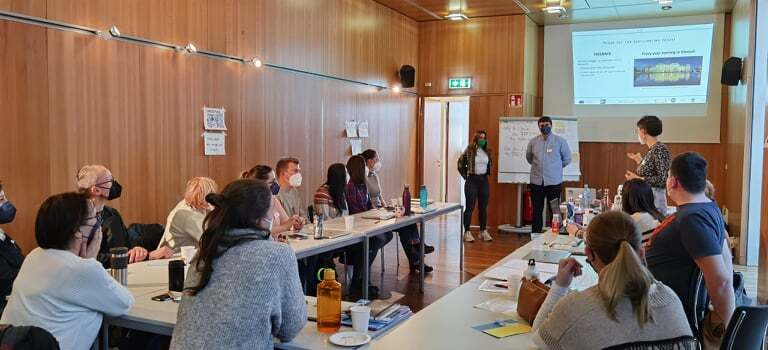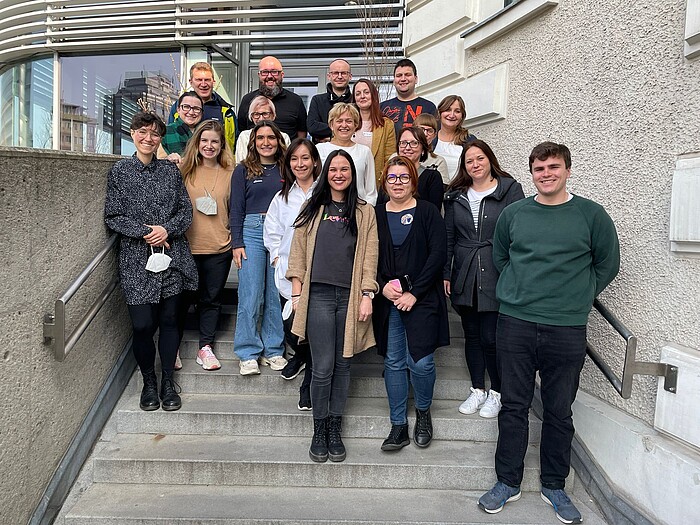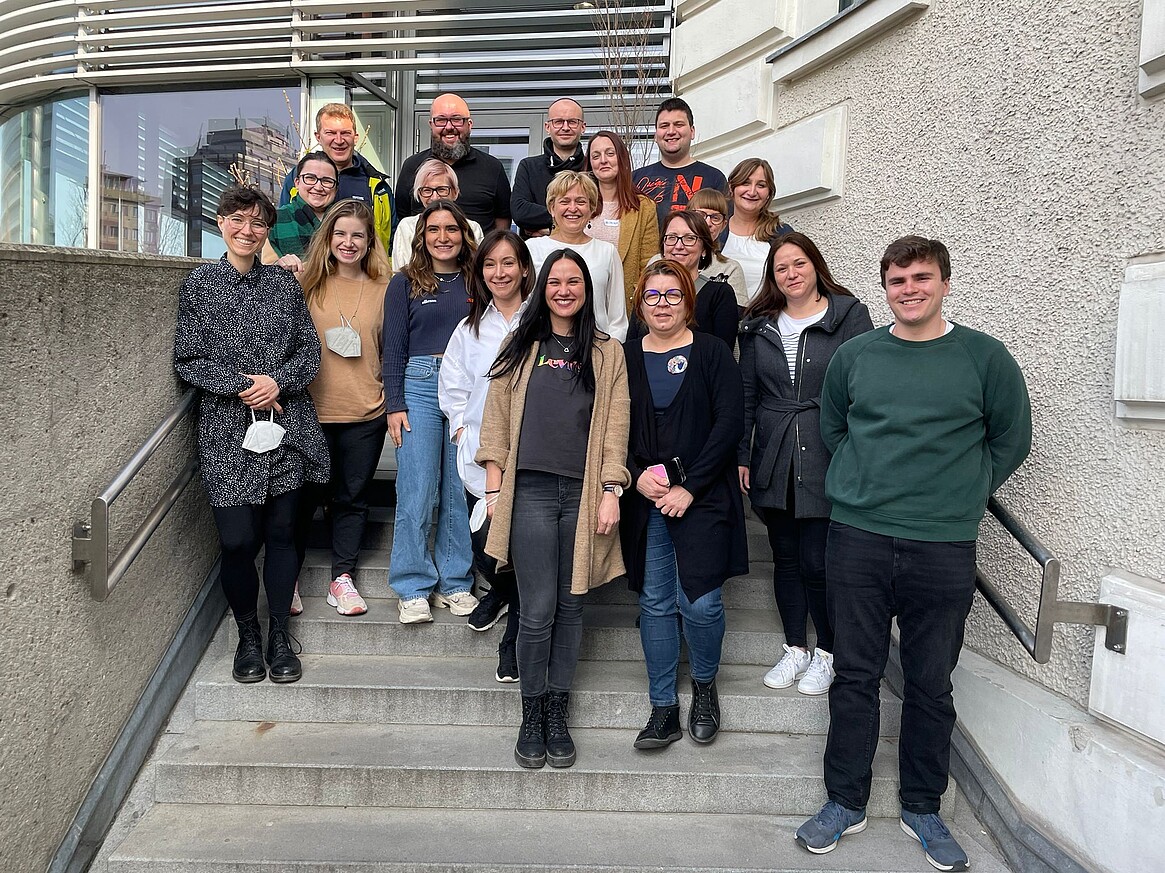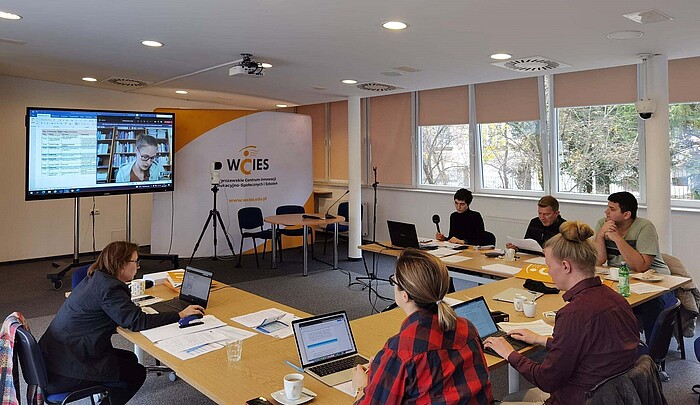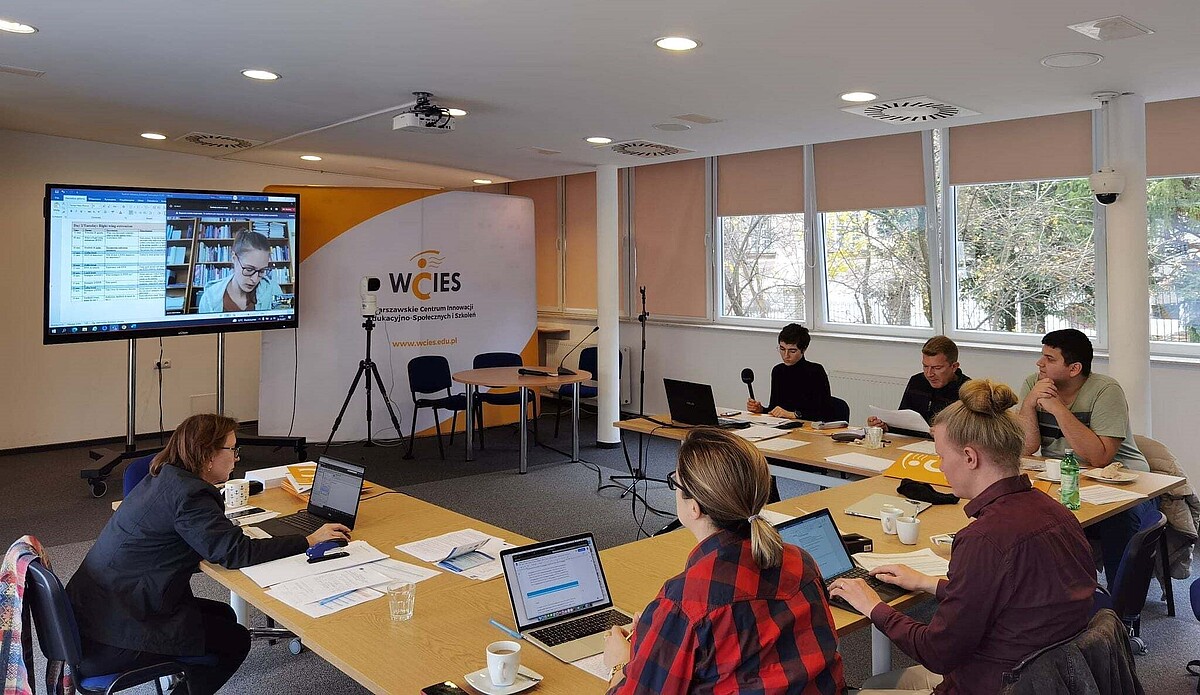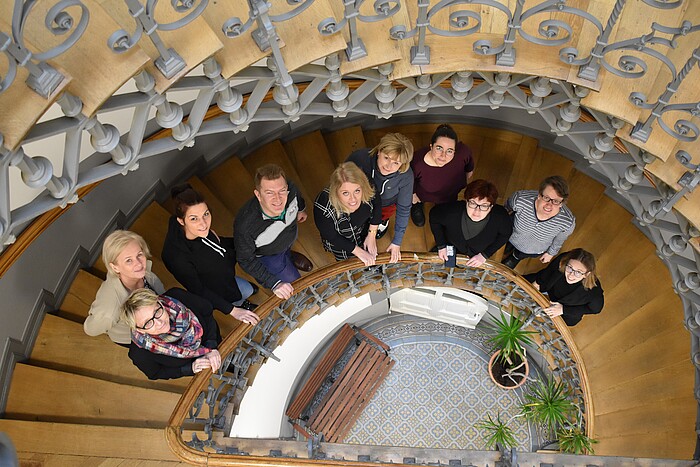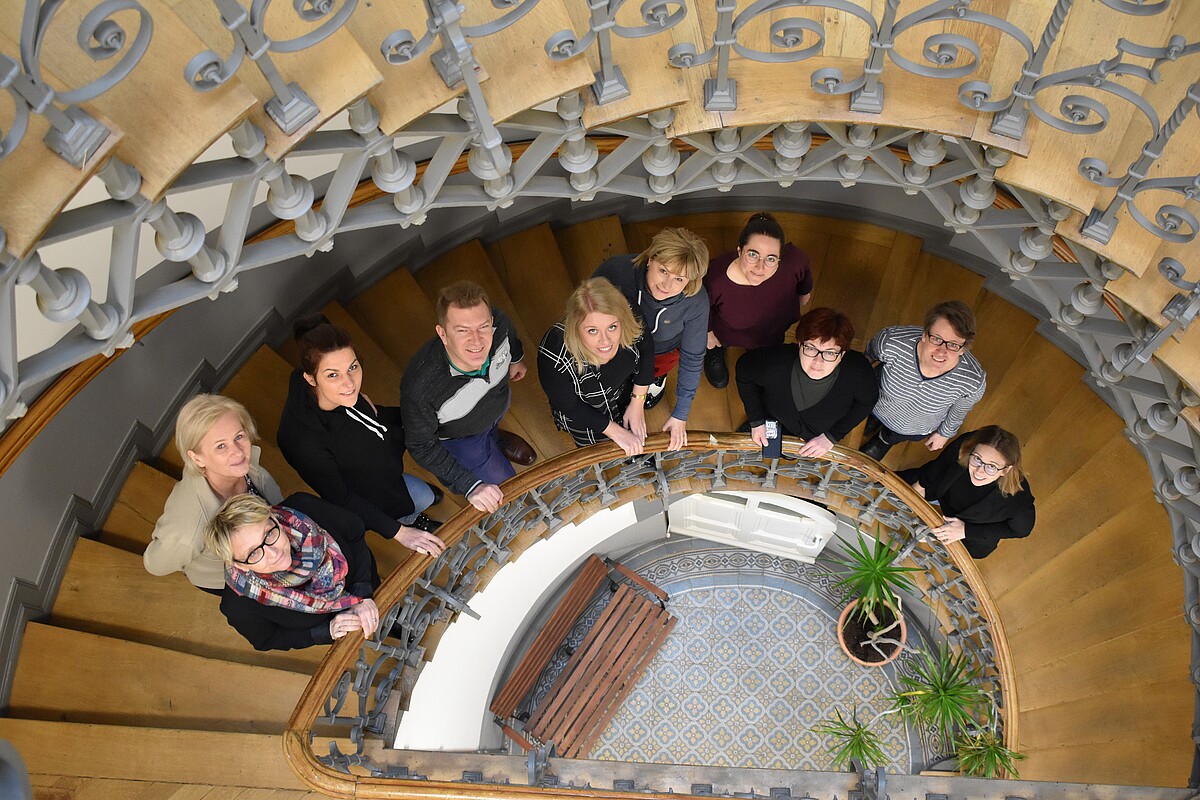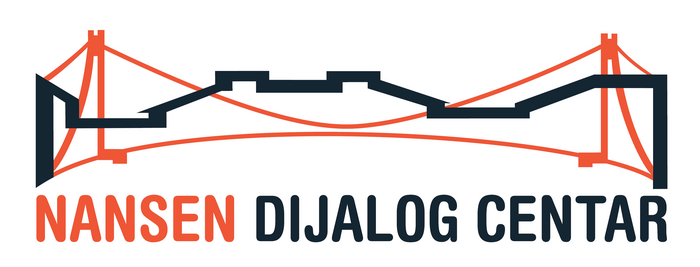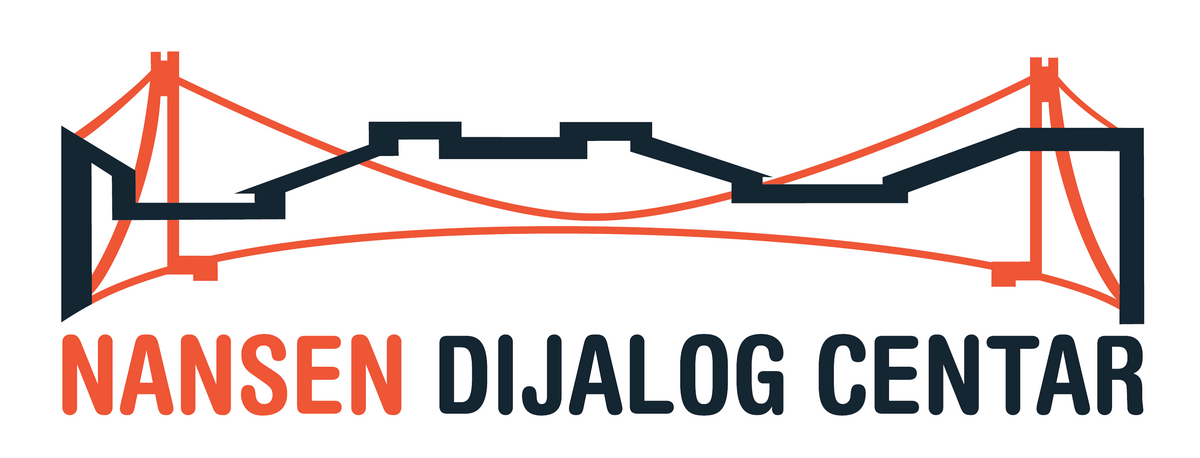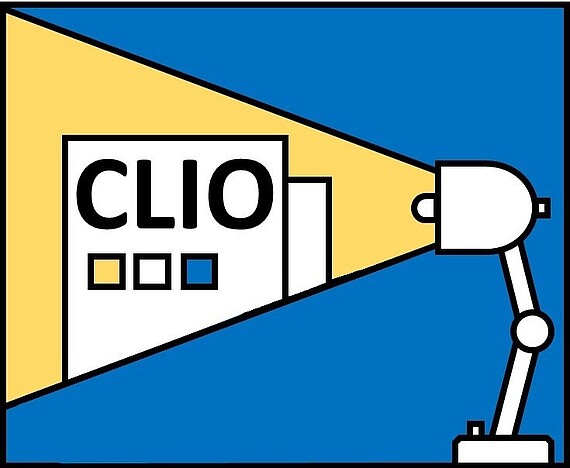
Clio is a project for the prevention and coping with right-wing extremism at vocational schools. Teachers and headmasters should be enabled to recognize and understand the corresponding positions among their students and to stand up for democratic values without fear. For this purpose, interdisciplinary experts from Austria, Poland, Croatia and Germany are developing various materials for vocational school teachers in close cooperation with the target group, such as an app, a blended learning training and a podcast. The main focus of this project is to build synergetic networks with other stakeholders in the individual countries in order to strengthen the schools and provide them with knowledge and professionally created material.
Project Manager

30167 Hannover

30167 Hannover
Project Lead
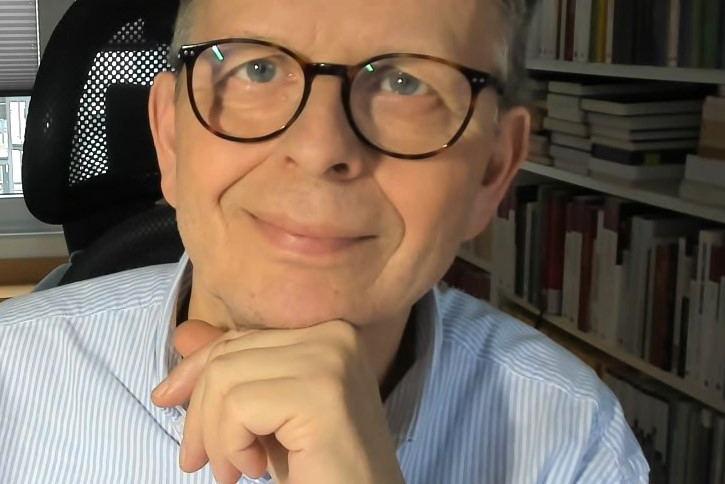
30167 Hannover

Project
Project summary
During lessons, vocational students paint pictures of Adolf Hitler; a student is arrested because he is accused of having committed an attack on a refugee accommodation. Yet there are school administrators who believe that this behaviour need not be addressed.
A student at a vocational school in Zadar (Croatia) burns a 'U' ('Ustascha') into the skin of a classmate belonging to the Albanian minority. The school management calls this a "game", whereupon the parents intervene. Lastly, the Croatian Minister for Family Affairs demands school administrators to perceive problems and take action.
On the other hand: Principals, teachers and also pupils who explicitly support democracy and diversity are increasingly threatened. For example with hate comments in social networks. Or with the publication of personal data in the Polish, non-legal online platform 'Redwatch'. These mostly anonymous 'users' receive moral support from influential associations (e.g. U ime obitelji in Croatia); Ordo Iuris in Poland). In Poland, even after the assassination of the mayor of Gdansk, some politicians in the field of education are still speaking out against the introduction of anti-hate speech programs in schools.
A problematic phenomenon in European societies is that citizens of the normative majority ('middle') increasingly use inhuman language when they speak about so-called 'others', e.g. Muslims, Jews, homeless, homosexuals. Many studies prove the rise of misanthropic attitudes. At the same time, there are deficits on the part of vocational school teachers when it comes to reacting to such statements made by students.
The objectives of CLIO are:
- Expanding teachers' knowledge of the political enabling conditions of ideologies of inequality (e.g. secondary anti-Semitism, anti-Muslim racism)
- Vocational school teachers and trainers in companies use an app to learn about symbols & codes that convey inhuman attitudes
- Installation and testing of participatory instruments at vocational schools to enhance democratic skills of the students
- Vocational schools form networks with other actors in order to implement a more democratic school culture and to relieve the burden on teachers
The consortium will provide the following outputs:
1. mobile app "Decipher codes and symbols“
organisations and groups that use misanthropic ideologies use codes, symbols, music etc. to win young people over to their goals. With this app, teachers etc. get to know the above-mentioned in order to sharpen their attention and to classify the situation at their school. The app contains, among other material, contact data for advice centres in the partner countries and thus promotes the networking of democratic actors.
2. BROCHURE + PODCAST
Many teachers are threatened by online reporting portals.The partners develop a 4-language brochure which refers to legal documents in each region that encourage teachers to intervene in certain situations. The brochure names organisations that support teachers.
The podcast contains fictitious interviews (teacher + consultant). It illustrates different possibilities for action.
3. MODULE
The topic of the Module is 'Ideologies of inequality' and is part of the Clio further education. The learning objective is to differentiate and expand the knowledge, perception and ideas of teachers with regard to ideologies of inequality.
4. CURRICULUM for 5-day blended learning course
The consortium will create a curriculum for a blended learning training and provide it freely. The curriculum is the written methodology and didactics of the blended learning training (attendance part in the form of a Learning-Teaching-Training Activity)
In addition to the module (Output 3), other Clio materials are presented and used extensively.
5. Webinars
as part of the blended learning course, follow-up webinars will be held.
6. Instruments of Democratic School Culture incl. Blog
Together with their teachers and external actors, pupils install instruments of democratic school culture at the participating vocational schools. this process is documented in a blog and thus presented in a way that has a lasting public impact and is easily accessible to other interested parties
Results
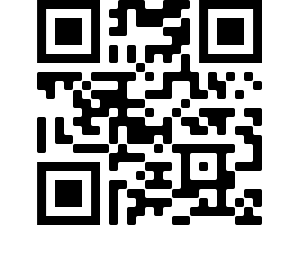
MOBILE APP "DECIPHER CODES AND SYMBOLS“
Organisations and groups that use misanthropic ideologies use codes, symbols, music etc. to win young people over to their goals. With this app, teachers etc. get to know the above-mentioned in order to sharpen their attention and to classify the situation at their school. The app contains, among other material, contact data for advice centres in the partner countries and thus promotes the networking of democratic actors.
To use the app scan the code on the left side or click here.
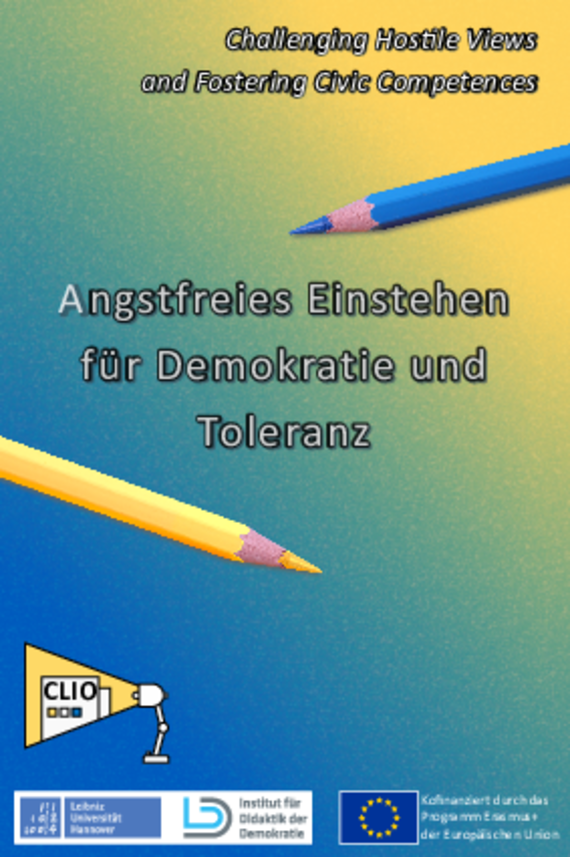
Brochure for Teachers
The first Clio Output deals with the country-specific issues surrounding discrimination in the school context and is primarily aimed at teachers.
- It aims to show for the German, Austrian, Polish and Croatian context that teachers do not need to be afraid of positioning themselves.
- The brochure also mentions possibilities for further training.
- The podcast complements the brochure with practical examples, which are described in the form of interviews.
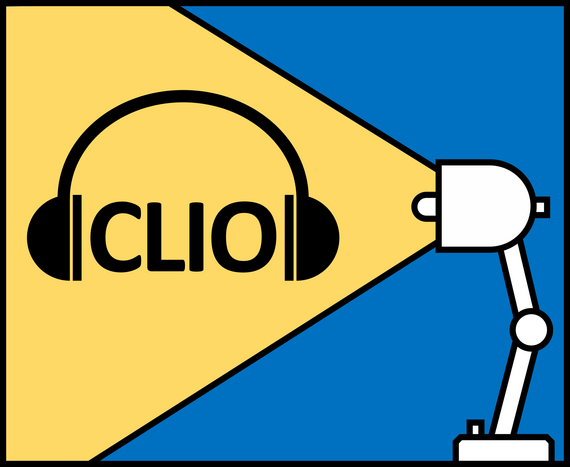
Podcast
The podcast contains fictitious interviews (teacher + consultant). It illustrates different possibilities for action.
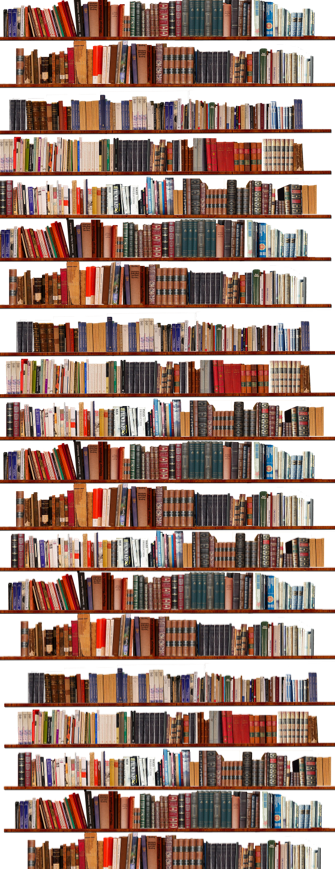
Module
The topic of the Module is 'Ideologies of inequality' and is part of the Clio further education. The learning objective is to differentiate and expand the knowledge, perception and ideas of teachers with regard to ideologies of inequality.

IO5: Webinars
These webinars in 4 different languages are part of the intelectual output Nr. 5. There are two different webinars in each language. The first webinar deals with civic education as a cross sectional task while the second webinar deals with the whole school approach. Each webinar includes audiofiles to listen to in the presentation.
The Clio-Blog

Stay tuned for more information!
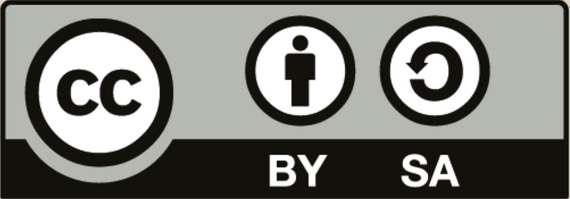
Unless explicitly stated otherwise, the content and materials are licensed under CC BY-SA 4.0
You are free to: Share — copy and redistribute the material in any medium or format, Adapt — remix, transform, and build upon the material for any purpose, even commercially.
News & Events
News
Follow us on Facebook: https://www.facebook.com/ClioProject/
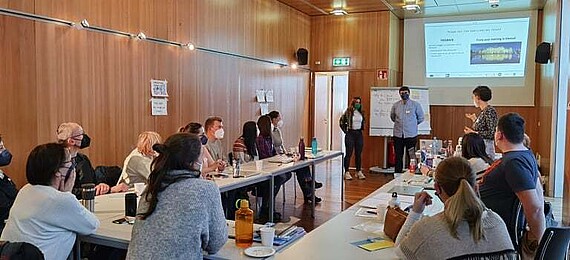
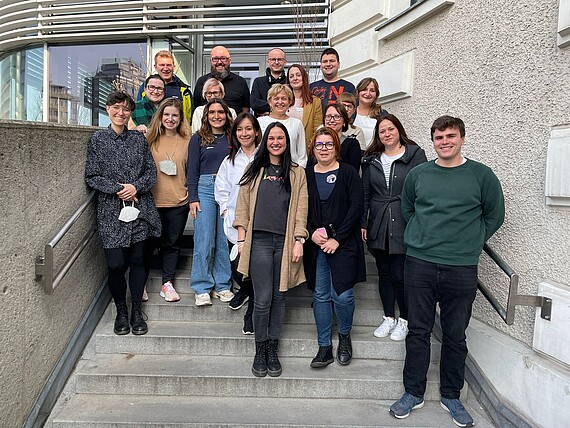
Clio Further Training Pilot Course
From March 14-18, the Clio Pilot Training took place in Vienna. Teachers from the partner countries Poland, Croatia, Austria and Germany came together to train their awareness of ideologies of inequality and to exchange and work out solutions to problems of this context in everyday life at schools.
Also the Clio Material was presented and used.
The training was a great success and represents the first part of the Clio blended learning training. Further on, webinars and online conferences will be held for the online part. Those who want to conduct their own clio training will soon be able to use our curriculum as a guideline.
This will contain a clear help and explanation of such a teacher training including an agenda. The content of the presence training will be based on the modules that have already been published. The online part will deal with the further topics "Civic Education as a Cross-Cutting Task" and "The Whole-School-Approach".
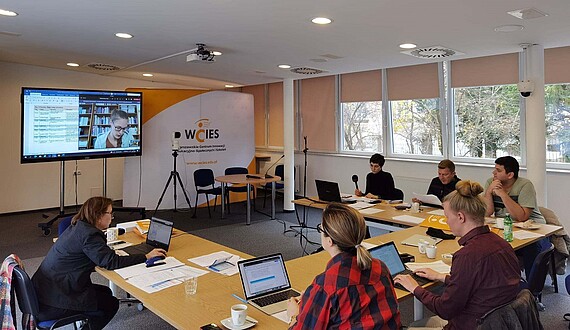
Hybrid project meeting 27.10.-28.10. in Warsaw, Poland
From 27th until 28. October 2021, the Clio project consortium met in Warsaw, Poland for the first time in a year and a half. Due to the good technical possibilities and the efforts of our hosts at Warszawskie Centrum Innowacji Edukacyjno-Społecznych i Szkoleń it was possible to hold the meeting as a hybrid! Two partner organizations were present via video conference. At this meeting the materials were worked on that will be used in a blended learning course for teachers and adult educators that will last several days. Beyond this training, the Clio materials will be made available online and free of charge. Stay tuned!
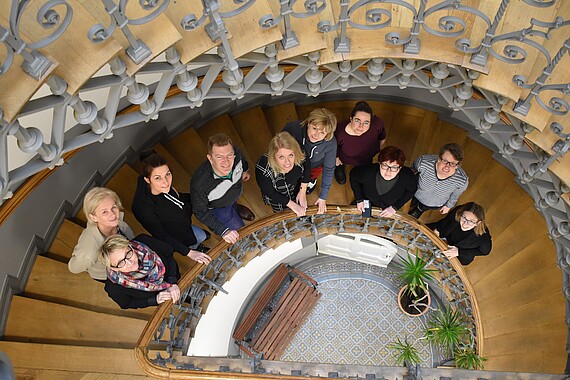
Kickoff Meeting 26.02. - 28.02.2020 Hannover
From 26.02.-28.02.2020 the Clio Kick-Off took place in Hannover. From each partner country 2 persons participated. Each of the institutions introduced themselves and explained their own needs and motivations for the Clio project. Besides getting to know each other, the main aim was to discuss the goals and the outputs to be worked on and to agree on common quality standards. Furthermore, communication channels were chosen through which the project management will run.
The second meeting will take place in Osijek, Croatia, in September.
About Us
Institute for Didactics of Democracy

As a research institute, we focus on civic education on a national and international scale. Dealing with anti-democratic tendencies and the development of tools to challenge them is one of our core competences. Within the Clio- project, we will contribute decisively to the development of competencies of adult educators to expand their knowledge of ideologies of inequality and to help them to act against them.
Website: https://www.idd.uni-hannover.de/de/institut/profil/
Democracy Center Vienna

We are an interdisciplinary research institute with 20 years of experience on our main topics: processes of democratization, digital citizenship, forms of participation and citizenship education.
Within the Clio project we will contribute with empirical research. We want to assist adult educators with knowledge and materials to help them to deal with antidemocratic ideas.
Contact Person: Lara Moeller (moeller@demokratiezentrum.de)
Website: https://www.demokratiezentrum.org/
Nansen Dialogue Centre
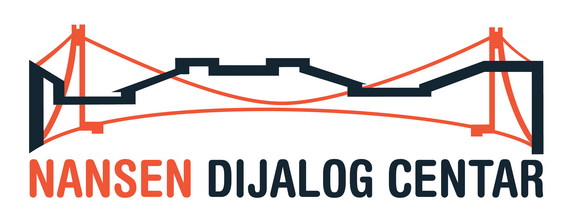
The Nansen Dialogue Center in Osijek is a NGO founded in 2001. The NAN has extensive experience in the field of political and intercultural education. It provides tools to overcome differences such as language, social background, 'ethnicity', religion, gender, etc.
The NAN focuses on establishing dialogues between segregated groups in post-war societies and divided communities. Individuals and marginalised groups are empowered through high quality, integrated education that is equally accessible to all learners.
Contact Person: Ivana Milas (ivana.ndcosijek@nansen-dialogue.net)
Website:
Nikola Tesla Technical School, Vukovar
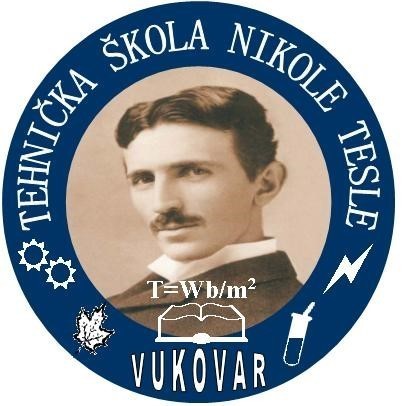
Nikola Tesla Technical School is a vocational school that trains 370 students aged 14 to 18 years for the following industries: computer technology, automotive & electrical engineering, environmental technology, mechanics and installation. In various projects and activities Technical school Nikola Tesla is engaged to show that irrational suspicion and hatred of certain groups of people justifies discrimination and in its extreme version can result in the abolition of rights of particular group of people. We want to show our students that these barriers can be overcome through communication between different cultures and ethnic groups, through mutual interaction, understanding and assistance.
Contact Person: Yasmine Sahovic (jasmina.sahovic@gmail.com)
Website:
Warsaw Centre for Socio-Educational Innovation and Training
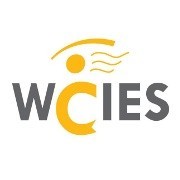
The WCIES is an in-service training centre for teachers established by the Warsaw City Council.
The main objectives of the Centre are to support the state educational institutions in Warsaw and to improve the quality of teaching in Warsaw schools and other educational institutions. The entire further training offer is free of charge. We offer a wide range of different training courses designed by teaching advisors and offered on behalf of the Education Department or as part of the Centre's statutory objectives to meet the specific needs of different target groups.
Contact Person: Małgorzata Zasuńska (malgorzata.zasunska@wcies.edu.pl)
Website:
Józef Pilsudski Printing Complex School, Warsaw
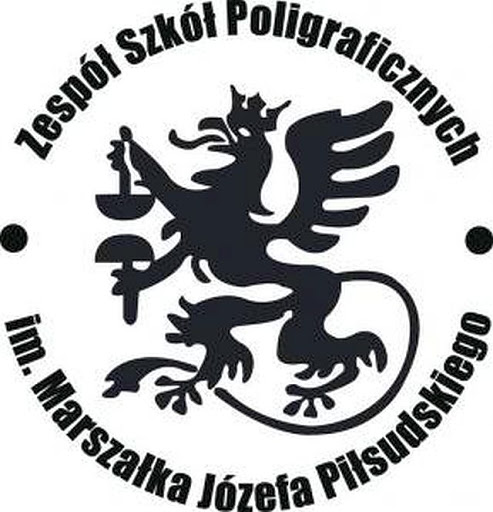
The Józef Pilsudski Printing Complex School was founded in 1926. From the very beginning it has been educating students in professions related to the printing industry. Recently, the students' council organized a debate on hate speech, extremism, tolerance and the responsibility of citizens.
The endless resourcefulness of the students and the desire to continuously develop their skills is a challenge for our teachers. On the other hand, the different social backgrounds of our student body lead to discussions about respect and acceptance of other people and constructive measures for peaceful coexistence.
Contact Person: Arkadiusz Kapelski (akapelski@wp.pl)
Website:

This project has been funded with support from the European Commission. This communication reflects the views only of the author, and the Commission cannot be held responsible for any use which may be made of the information contained therein. Submission Number: 2019-1-DE02-KA202-006185


